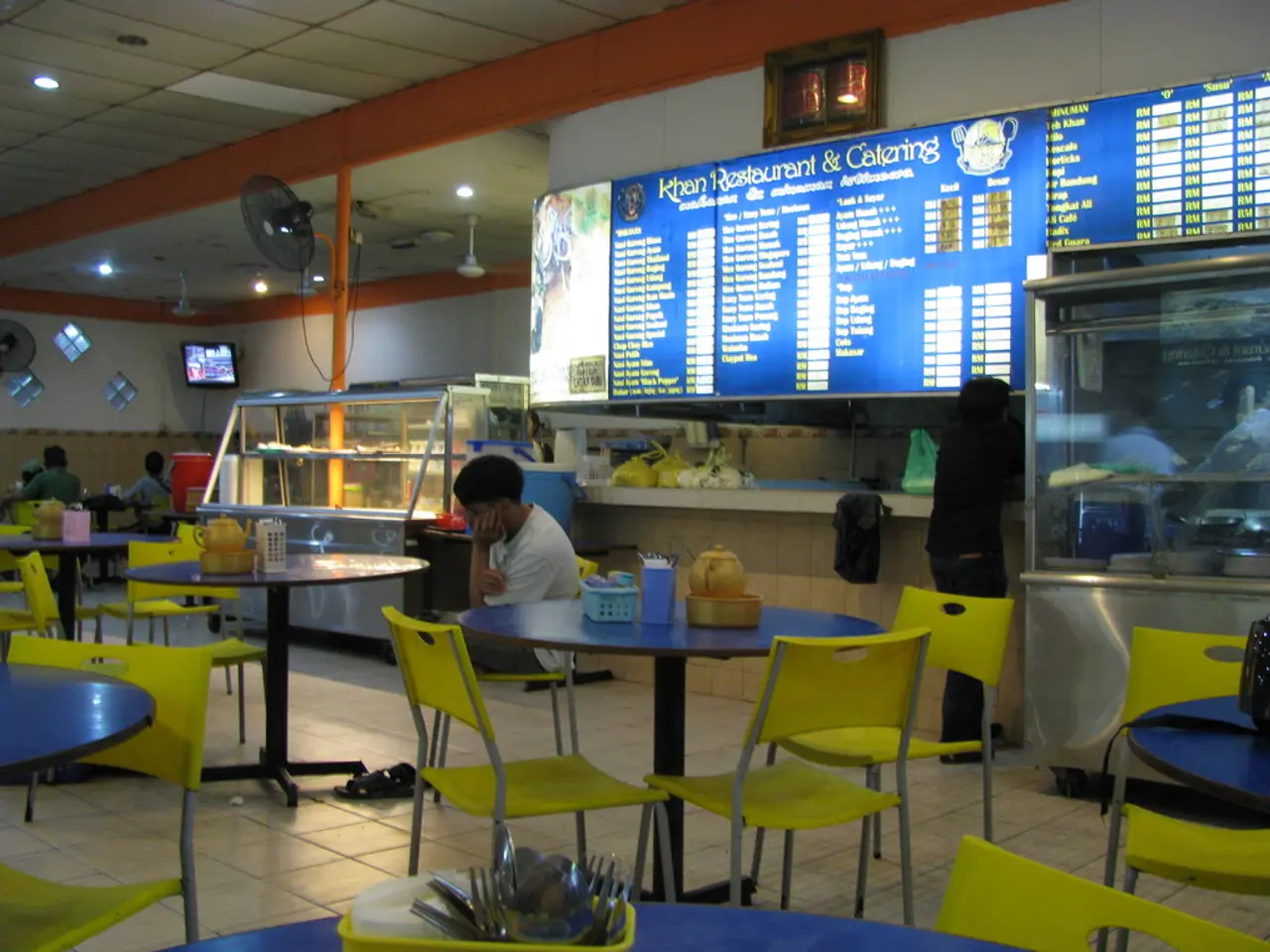Union voices concerns over excessive food discard - Union Criticizes Unnecessary Food Discarding
The Union of Food and Culinary Workers (NGG) in Germany has raised concerns about food waste in restaurants, particularly at all-you-can-eat buffets. The NGG has criticised the habit of leaving half-full plates or glasses in buffets with unlimited options, stating that it is ethically and economically unjustifiable for restaurants to throw away several hundred euros worth of food each week.
The NGG's stance emphasises the potential for savings in staffing and wages by reducing food waste in all-you-can-eat restaurants. The union advises against leaving uneaten food on plates in buffets and calls for "buffet discipline". Instead, they suggest that it's more reasonable to go to the buffet more often with smaller portions. The NGG appeals to restaurant patrons in Gera to fill their plates at the buffet "with moderation".
The NGG's criticism extends to the waste of resources due to overeating at buffets. The union criticises the habit of loading up as much as one can at buffets, which they believe is a misuse of resources. The NGG's criticism is focused on the issue of overeating and subsequent food waste at buffets.
In a more positive note, initiatives and solutions to address food waste in all-you-can-eat restaurants in Germany focus largely on smart waste management technologies and food surplus redistribution programs. One prominent approach is the collaboration with platforms like Too Good To Go, which helps restaurants sell their surplus food at reduced prices to consumers, thereby reducing food waste and promoting sustainability.
These initiatives help restaurants reduce food waste substantially while promoting environmental responsibility and economic benefits. Too Good To Go partners with over 175,000 food businesses worldwide, turning surplus food into "Surprise Bags" sold to local consumers who care about ecological impact. Each saved meal contributes to preventing approximately 2.7 kg of CO₂ equivalent emissions.
Other sustainable practices implemented by restaurants in Germany and elsewhere include emphasising reusable containers, waste reduction programs, and careful inventory management to avoid preparing excess food—all helping to curb waste, especially in buffet-style or all-you-can-eat formats.
In summary, Germany’s leading efforts to combat food waste in all-you-can-eat restaurants revolve around technological platforms for surplus food resale like Too Good To Go, combined with waste reduction and sustainability programs aimed at resetting food preparation and consumption habits within the hospitality industry. These initiatives are crucial in targeting significant food loss from food production and restaurant stages, accounting for about 15% of total food input waste in the country.
The Commission, in light of the NGG's concerns, has been asked to consider how science and health-and-wellness can play a role in reducing food waste in restaurants, particularly buffets, by providing evidence-based guidelines on appropriate portion sizes and promoting the importance of nutrition and a balanced lifestyle in food-and-drink consumption.
The NGG's call for "buffet discipline" sparks a need for political action, as general-news outlets highlight the impact of food waste on the economy and resources. Policymakers are encouraged to consider legislation that addresses the issue of overeating and food waste in the hospitality industry.
In line with the NGG's stance, the public is increasingly becoming conscious of the impact of their food choices on the environment and their health. Consumers are encouraged to make mindful decisions about food and drink consumption, taking into account both nutritional value and waste reduction.
As the NGG advocates for a more sustainable food culture, the success of initiatives like Too Good To Go demonstrates the potential for innovation and collaboration in addressing food waste. These solutions not only promote environmental responsibility but also contribute to a healthier and more conscious society.




